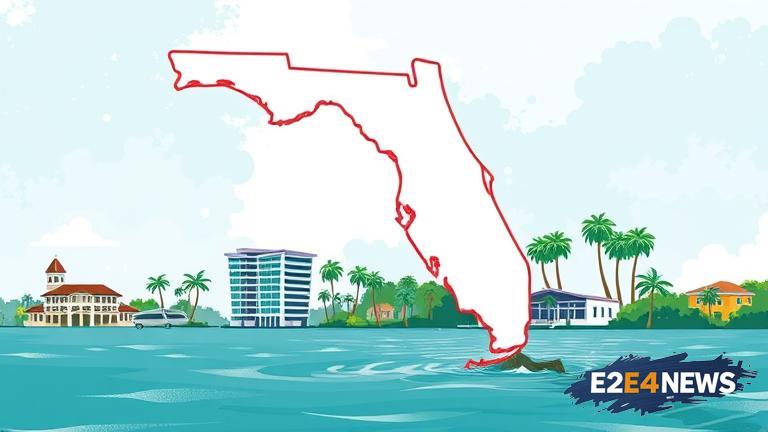The Florida insurance market is currently facing a period of uncertainty, with insurers struggling to cope with mounting losses and heightened regulatory scrutiny. The state’s insurance regulator has been closely monitoring the industry, imposing stricter requirements and fines on companies that fail to comply with regulations. This has led to a significant increase in insurance premiums, making it difficult for policyholders to afford coverage. Furthermore, the rising costs of reinsurance, which insurers purchase to mitigate their own risks, have also contributed to the upward trend in premiums. As a result, many insurers are reevaluating their business strategies, with some considering withdrawing from the market altogether. The situation has been exacerbated by the recent surge in insurance claims, largely attributed to the increasing frequency and severity of natural disasters in the region. In response, lawmakers have proposed legislation aimed at stabilizing the market and reducing costs for policyholders. However, the effectiveness of these measures remains to be seen, and the industry is likely to continue facing challenges in the coming months. The uncertainty surrounding the Florida insurance market has also sparked concerns about the potential impact on the broader economy, as the industry plays a critical role in supporting businesses and individuals across the state. Insurers are urging policymakers to take a more comprehensive approach to addressing the issues, including implementing measures to reduce the risk of natural disasters and promoting more efficient claims handling practices. Meanwhile, policyholders are being advised to review their coverage and explore options for reducing their premiums, such as increasing deductibles or bundling policies. The situation is being closely watched by industry experts, who warn that the consequences of inaction could be severe, including increased costs for policyholders and reduced access to coverage. In addition, the regulatory environment is likely to continue evolving, with insurers facing increased scrutiny and potential penalties for non-compliance. As the industry navigates these challenges, it is essential for policymakers, insurers, and policyholders to work together to find solutions that balance the need for affordable coverage with the need for a stable and sustainable insurance market. The Florida insurance market is not alone in facing these challenges, as insurers across the country are grappling with similar issues. However, the state’s unique circumstances, including its vulnerability to natural disasters and high cost of living, make it a particularly pressing concern. In conclusion, the Florida insurance market is at a critical juncture, and the actions taken in the coming months will have a significant impact on the industry’s future. It is essential for all stakeholders to prioritize collaboration and innovation, seeking out solutions that promote a stable, affordable, and sustainable insurance market for policyholders across the state. The situation will continue to unfold, and it is crucial to stay informed about the latest developments and their potential implications for the industry. With the right approach, it is possible to mitigate the challenges facing the Florida insurance market and create a more resilient and sustainable industry for the future. The importance of a stable insurance market cannot be overstated, as it plays a critical role in supporting economic growth and development across the state. As such, it is essential for policymakers and industry leaders to prioritize this issue and work towards finding solutions that benefit all stakeholders. The coming months will be critical in determining the future of the Florida insurance market, and it is essential to stay vigilant and proactive in addressing the challenges that lie ahead. By working together and prioritizing collaboration and innovation, it is possible to create a more stable and sustainable insurance market that benefits policyholders and supports economic growth across the state.
